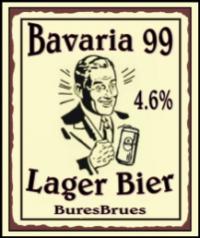Yes. Use sodium bicarbonate (baking soda). Mind your sodium values in BrunWater and read Martin's advice on it that he gives in the pop up boxes and on the info page regarding sodium levels. I haven't found sodium to be an issue because the baking soda seems to be pretty effective with only a small bump in sodium level. Depending on what you are making you might like the sodium bump you get. Good luck.
BTW per recent work done outlined in Water, chalk is largely ineffective due to solubility issues. If your sodium is already high then calcium hydroxide would be another option. You can read about that on the BrunWater info page too.













